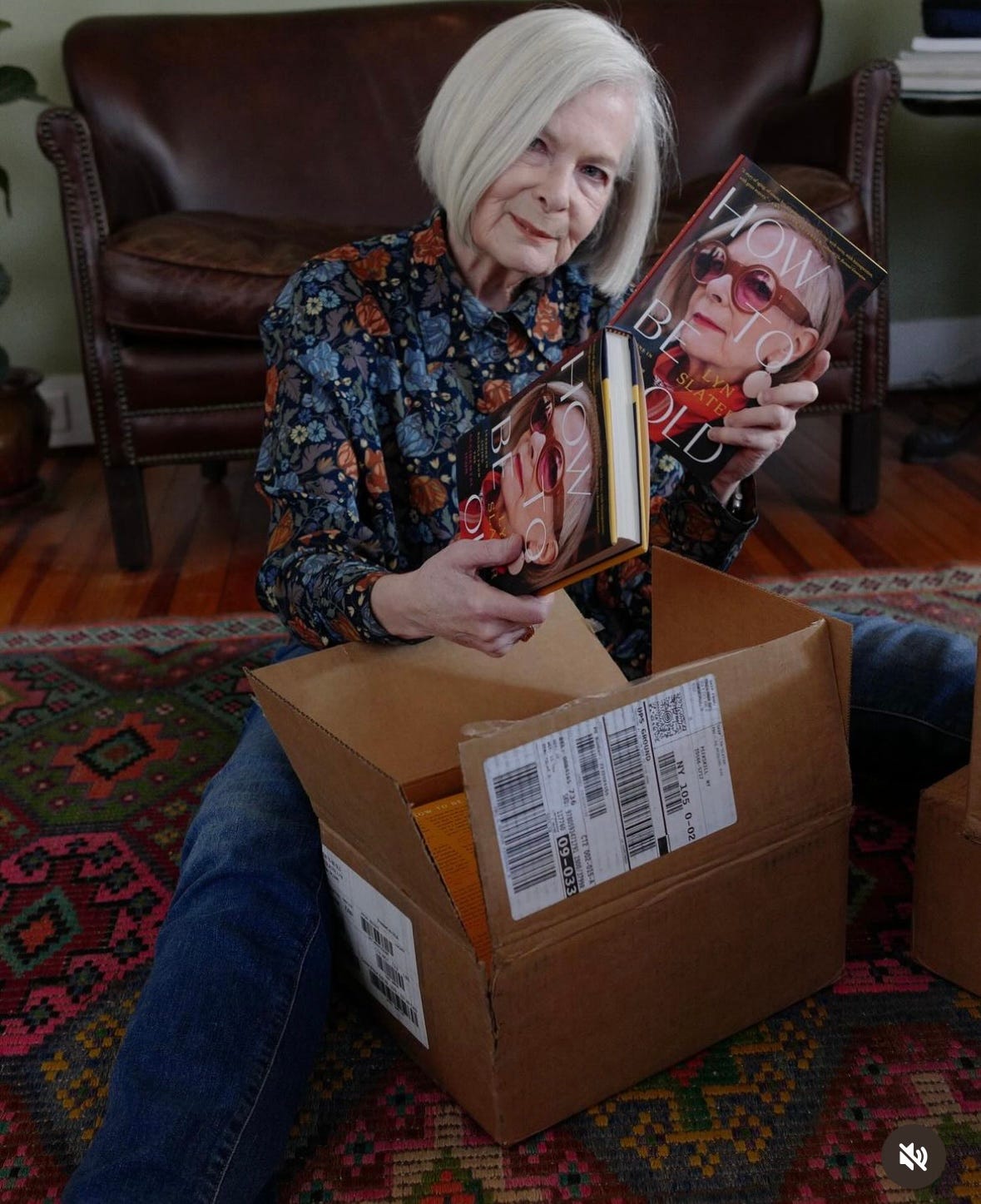Conversations with women (over 40): no longer Accidental Icon, Lyn Slater
"When you come to my age, at 70, the question is, where do you want to spend your money and your labour? And is it really on your appearance?"
I knew when I asked the phenomenal
to come on The Shift podcast to talk about her talent for reinvention, ending chapters and starting new ones, that she would go down a storm. But TBAH, I had no idea quite how much! As some of you have told me that you can’t – or don’t want to – listen to podcasts, here’s our conversation for your Saturday morning reading pleasure.About Lyn: For 45 years Lyn Slater was a professor of social work with a side passion for fashion. Feeling burnt out, she started a blog aimed at women like her who wanted to talk about clothes and the way they shape our identity. And just like that, the phenomenon that was Accidental Icon was born. Suddenly the professor found herself an influencer. And for most of her 60s, the Instagram sensation that was Accidental Icon took over her life. Until she reached a point where she began to wonder precisely where Lyn had gone. Now, in her first book, How to be Old, a story of ageing, identity and what it means to be comfortable in your own skin, Lyn has done it again. At 70, she's a debut writer, something she's dreamt of since she was seven.
Sam: I just want to start by saying I absolutely loved the book. I think you should be so proud of it.
Lyn: Oh, thank you. I am. And, you know, it's kind of an interesting backstory, because, of course, all of the people who like to sell books, they wanted it to be completely about the sexy story, you know, the beginning part of my journey. And so, I had the good fortune to work with the most incredible editor, a young woman, 28. And she just really supported me all the way in writing the story that I wanted to write.
Yeah, it's really interesting, isn't it? Because when I wrote the book that led to this podcast (The Shift), firstly, it was very much like, “oh, nobody's interested in not being young, so no one will want to read a book about it”. And then it was like, “the only people who listen to the podcast will be ‘old’ people”, but actually, one of my biggest audience groups is 25 to 34.
Same. And people are amazed by that. But this week, it really came to me what is going on, because I read a lot of young women writers, and many of them are feminists, and they're really looking at marriage and divorce and, you know, really wanting the truth about things. Right? And they want to speak the truth about it. I've had a number of interviews this week where I was being interviewed by a young woman. And the questions they were asking really had nothing to do with idealised ageing. One of them said to me, ‘Are you afraid of dying?’
They now want to get beyond the fear that society has created about getting old. And that’s part of why I quit [Accidental Icon], because this was a very privileged and idealised version. I think our job as older women – and we have these audiences – is really to talk to them, to tell them the truth. That, yes, parts of it are glorious. Yes, there are many opportunities, but also there are parts that really suck, and have a lot of challenges. And I think creative stories of how we meet those challenges, you know, whether it’s your lifelong partner dying, or your mother dying, or this question about how are we thinking about our own deaths? I think we're in a serious mood time. When people only want me to talk about being this, you know, Instagram person, this style person, the response is mixed. And I've been trying to tell people that, because I have always had a good pulse on the public conversation, and people are serious now. They're in a serious mood. Big, big things are happening. And so, the challenge is, how do you remain optimistic and hopeful yet, being honest with people, at the same time.




